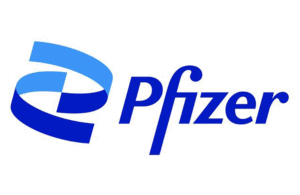 Pfizer (NYSE:PFE) accused a former employee Chun Xiao (Sherry) Li of uploading 12,000 documents from a company-issued laptop to a personal Google Drive account and various personal devices.
Pfizer (NYSE:PFE) accused a former employee Chun Xiao (Sherry) Li of uploading 12,000 documents from a company-issued laptop to a personal Google Drive account and various personal devices.
In a complaint filed in the U.S. District Court for the Southern District of California, Pfizer also accuses Li of misleading the company about what she did with the files she reportedly took, which included sensitive intellectual property.
The alleged stolen documents pertain to “numerous Pfizer vaccines, drugs, and other innovations,” including its COVID-19 vaccine and avelumab and elranatamab monoclonal antibodies.
The company jointly developed the COVID-19 vaccine with BioNTech. Pfizer jointly developed avelumab (Bavencio) with Merck KGaA, Darmstadt, Germany. The drug won FDA approval in 2020.
The bispecific monoclonal antibody elranatamab remains in the clinic.
The lawsuit notes that Pfizer invested more than $2 billion in the COVID-19 vaccine.
Pfizer believes that Li was planning to work for the competitor Xencor (NSDQ:XNCR), a clinical-stage biopharma based in Monrovia, California.
Li informed Pfizer that she planned to resign effective November 24, 2021.
Furthermore the company suspects that someone else is now in possession of the 12,000 documents. The lawsuit uses the fictitious names “Does 1 through 5” to refer to individuals who collaborated
Pfizer accuses Li of misappropriation of trade secrets, breach of contract, conversion and trespass to chattel.
The complaint also is seeking a court order to gain access to Li’s personal Google Drive account.
Li did not immediately respond to a request for comment.
Li joined Pfizer in 2006 as a Chinese employee. In 2016, she transferred to the company’s facility in La Jolla, near San Diego, California.
The company believes she downloaded thousands of sensitive files between October 23 to October 26, 2021.
The company believes she downloaded sensitive files between October 23 to October 26, 2021 after performing a forensic analysis of Li’s computing devices.
Intellectual property protection has emerged as a sensitive topic. Recently, 15 organizations including Public Citizen, Human Rights Watch and Doctors Without Borders co-signed a letter to the White House asking for an intellectual property waiver for COVID-19 vaccines to bolster international supply. In addition, more than 60 developing nations including South Africa and India have asked for such a waiver pertaining to COVID-19 vaccines, tests and treatments.
The case is titled Pfizer Inc. v. Li, S.D. Cal., No. 3:21-cv-01980.